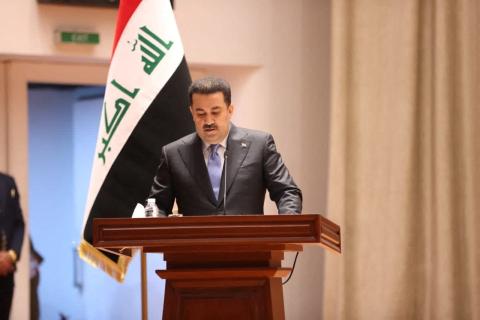
The approval of the Iraqi budget is likely to be delayed until sharp differences are resolved between the Sunni and Shiite parties over the implementation of the political agreement that led to the formation of the government of Mohammad Shia al-Sudani.
The agreement, which brought together the Coordinating Framework with Sunni and Shiite parties, included a comprehensive settlement of controversial files, such as the budget and the amendment of laws, most notably the general amnesty, accountability, and justice.
In the event of the failure to implement the agreement, the deal that led to the formation of the government will collapse, as stated by deputies from the Sunni parties.
According to political sources, the adoption of the budget could be hindered with the collapse of the agreement. In fact, the leaders of the Coordination Framework requested to review the law, and reduced the ceiling of the demands agreed upon with the Progress Party, which is headed by Speaker of Parliament Mohammad al-Halbousi.
With Parliament’s attempts to pass the budget law, the Sunni parties received indications from the Coordination Framework that the latter went back on the political agreement. These indications were strengthened following a decision by the leader of the State of Law Coalition, Nuri al-Maliki, and the head of the Badr Organization, Hadi al-Amiri, to review the agreement with the Sunni forces, before forming the government, as reported by well-informed sources.
According to the information, “Al-Maliki and Al-Amiri believe that the political agreement offered great concessions to the Sunni forces,” and that the “time has come to lower the ceiling, before approving the budget.”
However, the desire of the Shiite parties to amend the terms of the government agreement does not enjoy unanimity among the Coordination Framework, as some parties fear it would shake the balance that Sudani’s government needs to survive.
In parallel, sources noted that the leader of Asa'ib Ahl al-Haq movement, Qais Khazali, received a warning from Tehran against “hampering the required partnerships, at a sensitive time in the region”, and emphasizing the need for calm.
The Progress Party fears that strategic projects for the reconstruction of liberated cities will be disrupted, as a result of manipulation of its share in the financial budget, which was initially agreed upon with the Coordination Framework.











